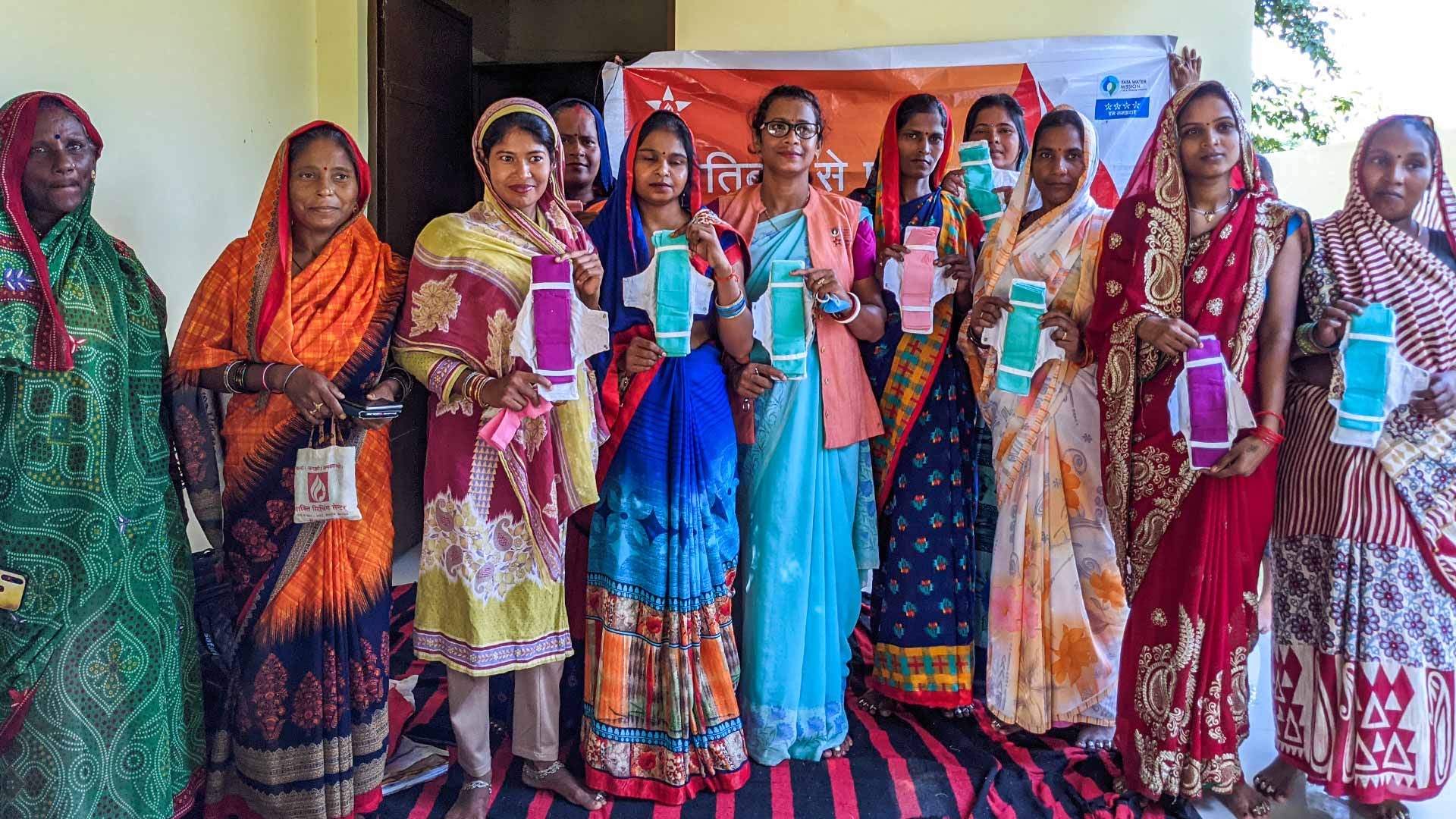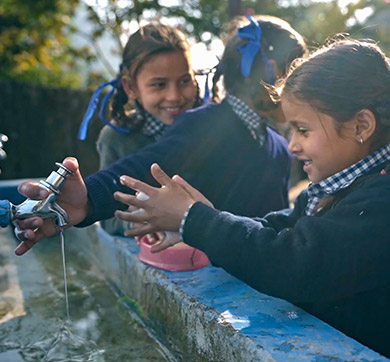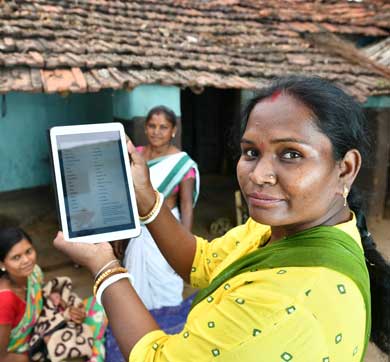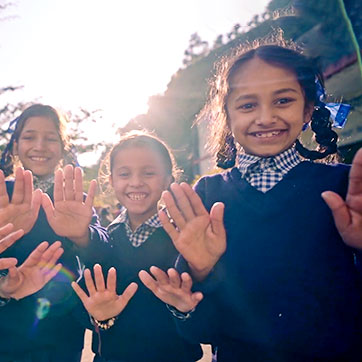October 2022 | 1315 words | 5-minute read
When the Covid 19 pandemic shut down the nation, it caused untold hardship and escalated health concerns all over the country. With the focus being on dealing with Covid 19 cases and striving to minimise its spread, another lesser – but equally important – health issues were neglected or even ignored. One of these was the issue of menstrual health and hygiene.
In Uttar Pradesh (UP), for instance, the Tata Trusts’ Menstrual Hygiene Management (MHM) initiative works to educate and empower menstruating women and dismantle the stigma associated with menstruation.
They soon realised that the lockdown had severely affected girls’ and women’s accessibility to sanitary napkins. The reasons were many – their movement was necessarily restricted due to the lockdown; their ability to pay had reduced due to the loss of wages; even if they could afford it, shops nearby had closed, shutting off access. The situation was even more critical among female migrants, women in temporary shelters and in the quarantine centres.
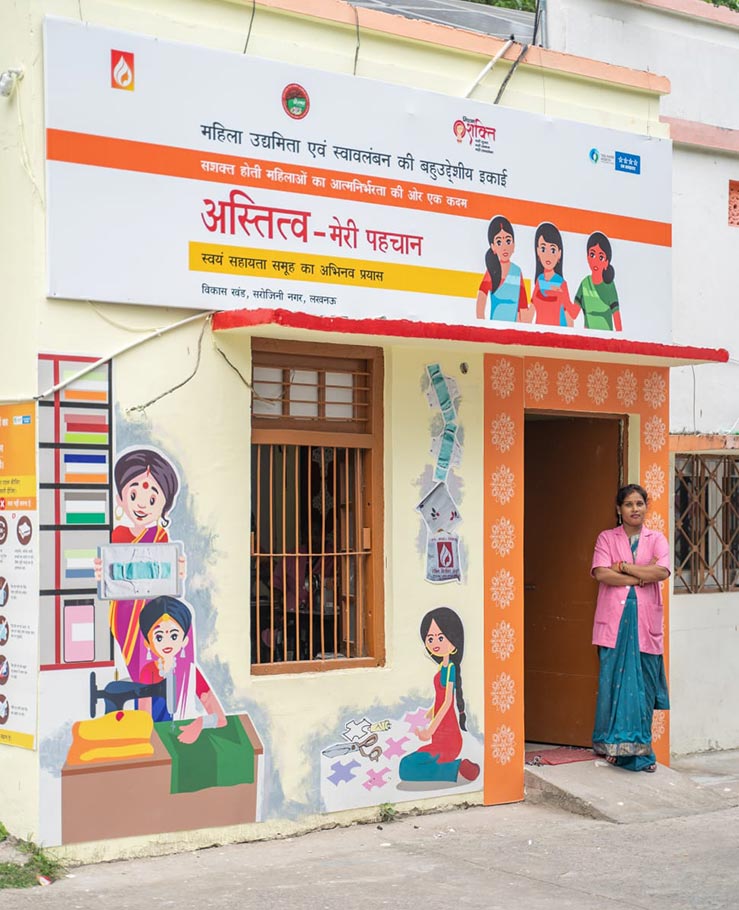
The root of the issue
In a bid to understand the gravity of the issue, the MHM team in UP conducted a baseline study in January 2020. With the help of their cluster resource persons (CRPS), they conducted a survey of 263 women in their intervention areas.
Approximately 74% of women surveyed in Bahraich and Shravasti districts were using both cloth pads and disposable plastic pads for their menstrual needs. What’s more, they preferred the former, washing and sun-drying cloth napkins so they could be reused.
When the Trusts conducted a similar telephonic survey amongst 200 women in April 2020, they found that 93% of the women had now moved to cloth pads, completely reducing their dependence on disposable pads. The lack of accessibility was cited as the main reason for the shift. These women preferred to use fabrics like chiffon, nylon and other cheaper materials as opposed to cotton, a relatively more expensive material. But these fabrics lacked the absorbent qualities of a cotton pad. The fabrics used also caused rash in the genital area, leucorrhoea, and other such ailments.
Swinging into action
The Trusts believe that it is the right of every woman to manage menstrual hygiene without stigma. Yet, women were compelled to rely on reusable, unhygienic cloth pads during an already stressful pandemic. But it is not easy to change prevalent customs. Therefore, the MHM unit stepped carefully to change mindsets and help women take charge of their own health. Initially, they roped in the CRPs, sharing with them the technology to stitch reusable cloth pads for their families’ use. The CRPs stitched a few cloth pads, used them and even shared them with other women in their neighbourhoods. This created a rising demand for these pads. With the success of that experimental foray, the project team swung into action to provide the 3 As – Accessibility, Affordability and Availability of menstrual hygiene products to the women of Bahraich, Shravasti and Lucknow.
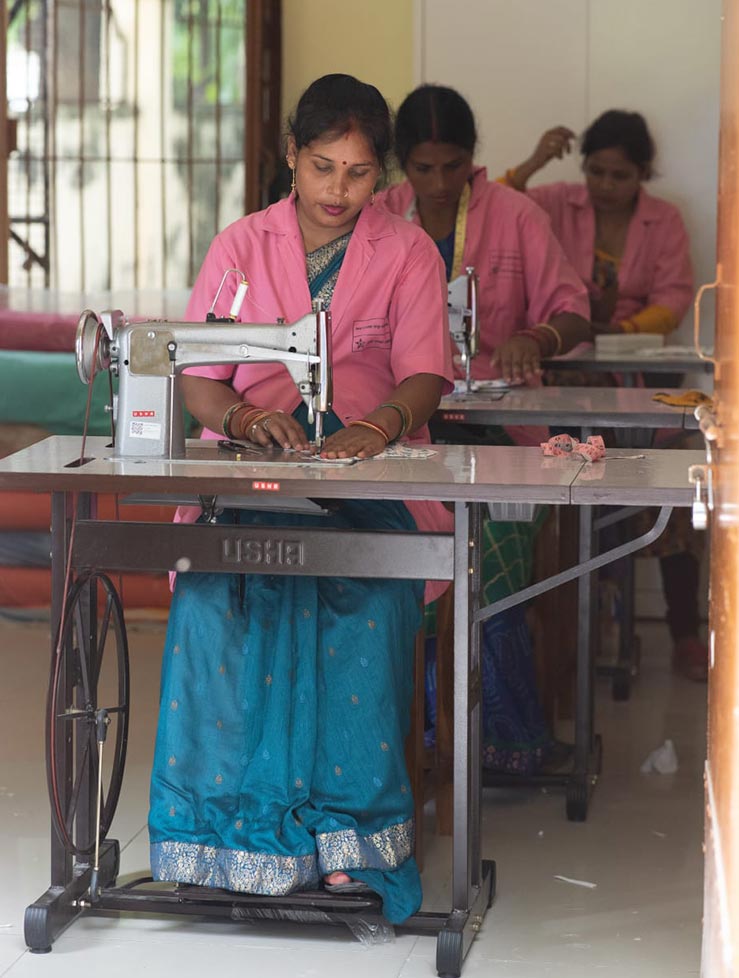
Stepping up the impetus
Grassroots organisations have been working at different levels in various parts of the country to raise awareness of menstrual hygiene. The Trusts MHM initiative has also been exploring myriad avenues to raise awareness, and provide cheap, high quality, reusable cotton pads to women and adolescents. Here in UP, the Trusts’ MHM team decided to establish cloth pad production units to ensure that supply met demand.
The project team used CRPs to reach out to women’s self-help groups (SHG) in these districts through the Uttar Pradesh State Rural Livelihoods Mission (UPSRLM). The first production unit was set up in Bahraich in November, thanks to a frontline worker who offered space in her home. The Trusts funded the first production through raw materials for 3,000 pads, which included, amongst other resources, a sewing machine. The pads produced could be used for up to 6 months, at an affordable cost of Rs60 per pad.
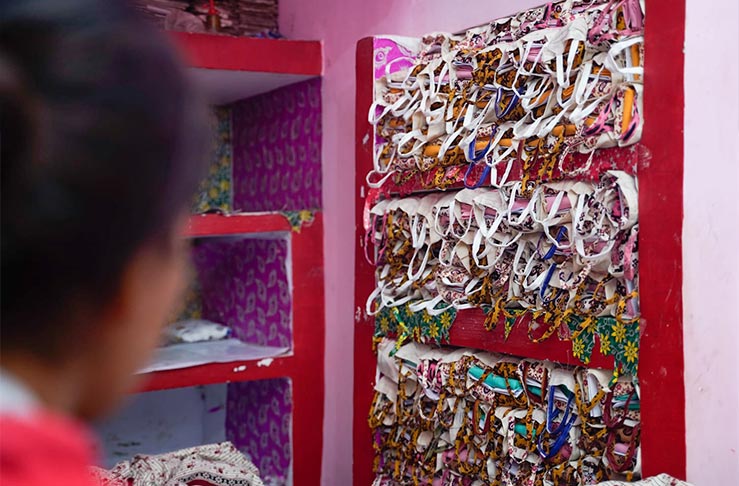
A multi-pronged objective
The objectives of this project were to provide the 3 As, as well as to promote the use of reusable and ecologically safe menstrual absorbents for rural women and adolescents. At the same time, the production enterprise would focus on a sustainable model based on women's enterprise to see if a social business model could be set up for SHGs during an economic slowdown. Sensitising the SHGs to the use of these sanitary products also had the beneficial impact of spreading the right information about menstrual hygiene in the intervention areas. With UPSRLM’s support, an AOP (Association of Persons) of ten women from various SHGs was set up to facilitate the production of reusable, eco-friendly cloth pads and other products. “It is time to make our environment and surroundings period friendly, by shifting towards sustainable menstrual choices,” says Ms Pallavi Gautam, MHM Project Manager, UP, who is one of the core personnel on the campaign.
The next step was to spread the news about these new reusable sanitary pads and to persuade women and adolescents to shift to environmentally friendly sanitary products that would enable them to live a healthy, hygienic, and cost-effective life. One of the Trusts’ MHM activities in UP included a four-module workshop which included lessons on menstrual hygiene, that also touched upon the different (strictly sustainable) menstrual hygiene products the women can use. Through these existing modules, Trusts began to share details of the newly-stitched cloth pads. Gradually, through the combined efforts of the CRPs, ASHA workers and other aggregators, the word spread, and more and more women began using the cloth pads. Neighbouring regions such as Gorakhpur and Lucknow, pleased with the model, also began placing orders for the pads.
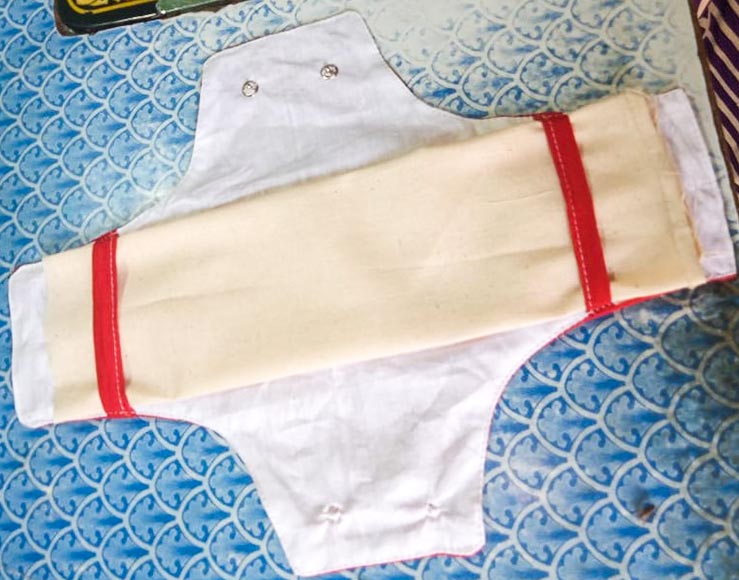
“My thighs used to chafe due to the sanitary pads since I was working on the farm all day,” says Ms Khushboo, a project beneficiary. “Ever since I learnt about the reusable cloth pad through MHM’s awareness sessions, it has been a boon. Especially since these pads are beneficial to my health, environment-friendly and economical.” By July 2021, the Trusts had sold 5,000-6,000 pads. A post-use review found that the women were quite pleased with the quality of the pad and found them to be leak-proof when used according to given directives.
A replicable model
Swati Singh, the then-Minister of Women and Child Development, UP, was impressed by the work done in Bahraich. She contacted the Trusts and her efforts led to the construction of a bigger production unit in the constituency of Sarojini Nagar, Lucknow in September 2021. As of today, both units have a turnover of Rs3-4 lakh each per year.
Using the SHGs to enhance production meant that within a year and a half, the women from both units had stitched more than 16,000 cloth pads and had sold more than 14,000. This has enabled thousands of women to manage their menstrual hygiene better; what’s more, the 10 SHG workers earn Rs3,000-4,000 each per month and sometimes more by procuring orders from a range of vendors. This has helped them to contribute to their household income and thereby improve their quality of life.
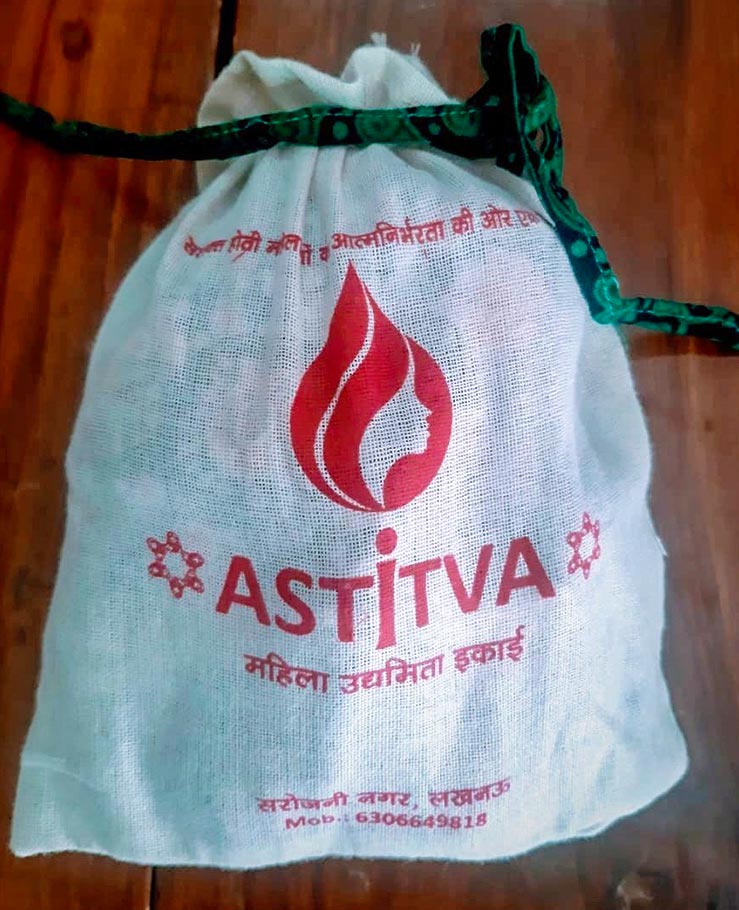
SHG worker Ms Premlata says, “Through our work, our group of ten women have realised the importance of eco-friendly products; we are also happy to earn our livelihood through the production of these products.”
One of MHM’s goals was to establish a business that would address social and environmental needs and focus on reinvesting its earnings into the business and community. The success of this project means that the model adopted in UP can be duplicated across the country, so that more and more women can manage their own health and hygiene in a sustainable, affordable and eco-friendly manner.
Previously published on TataTrusts.org




